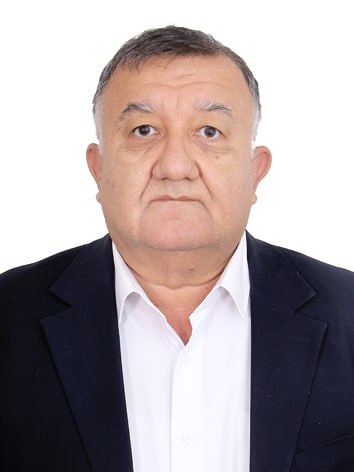 |
Head of the Department of "Agrotechnologies" Nurillayev Rakhmat YarashevichCandidate of science of agriculture
Reception time: Phone: +998 90 669-77-33 E-mail: raxmatnurillaev@gmail.com |
HISTORY OF THE DEPARTMENT
The Department "Agrotechnologies" was established by the director of the Institute on September 5, 2023 with the number 181A/F. Today, the Department of Agrotechnologies operates 14 professors, of which 1 doctor of Sciences (DSC), 7 associate professors, 3 Senior Teachers, 3 assistants.
INTEROPERABILITY
Tashkent State Agrarian University of the department, Research Institute of livestock and Poultry, Research Institute of blackcurrant and Desert Ecology, Veterinary Research Institute, Samarkand Veterinary Medicine, Institute of livestock and biotechnology, Southern Agricultural Research Institute, Lalmikor Agricultural Research Institute, Plants genetic research institute - cooperation has been established with the Research Institute of resources, Tashkent Institute of chemical and technology, Karshi State University, Research Institute of acetic selection, seed and agrotechnologies, PLC “Kashkadarya don mahsulotlar”, Board of farmers of Kashkadarya Region, Department of Agriculture and water management of Kashkadarya region, Regional Association “Kashkadarya pakhtasanoat”, Kashkadarya testing and certification center.
SCIENCE, EDUCATION AND PRODUCTION INTEGRATION
The department has established the integration of Science, Education and production with the Council of farmers of the Kashkadarya region, PLC “Kashkadarya cereals”, PLC “Dunya-M”, PLC “Shahrisabz konserva”, Kashkadarya testing and Certification Center, Animal Disease Diagnosis and food safety center of the Kashkadarya region.
PROMISING WORK PLAN FOR RESEARCH WORK OF THE DEPARTMENT
- Scientific capacity building (PhD and DSc);
- Development of science, education and production integration;
- Implementation of research projects on the basis of a state grant (Fundamental, practical, and innovative projects )
- Economic contracts (commercialization of developments on startup projects)
- Publishing textbooks, tutorials, monographs, Scopus and WOS articles
- Development of foreign cooperation, international conferences (once every 2 years)
- Preparation of winners of prestigious international and Republican competitions
